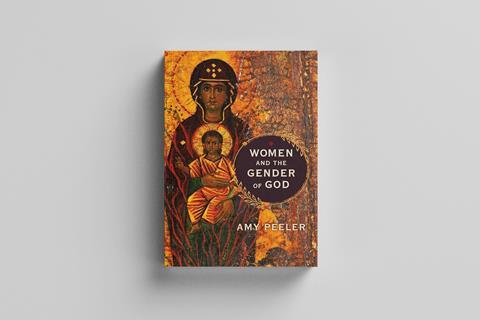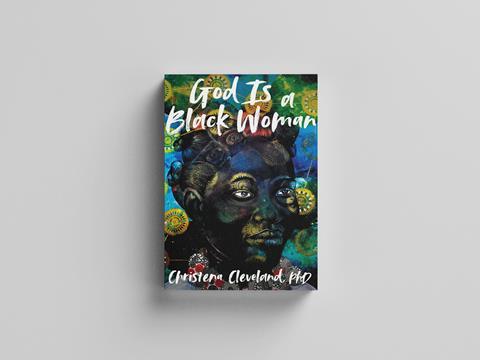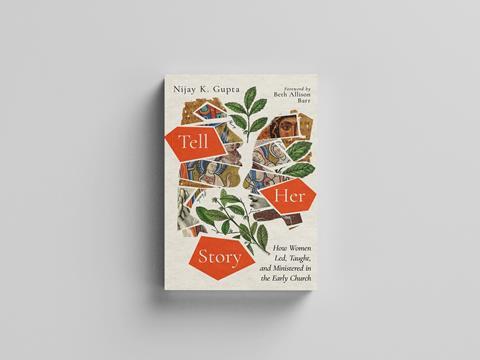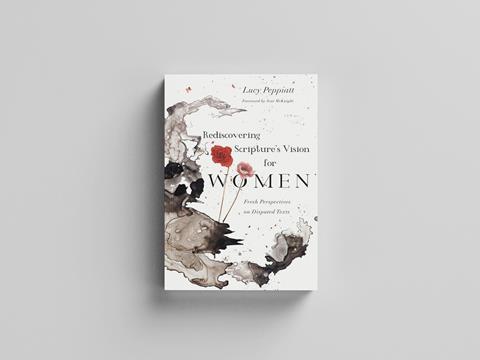Dr Belle Tindall shares four of the books that have shaped herthinking and helped her understanding of Christian feminism as a ‘collective endeavour’

Instead of offering you more of my own words this month, I thought I’d point you in the direction of other women’s words. Words that have shaped me. Words that have comforted me. Words that have stretched me. Words that have made me feel seen, words that have encouraged me to see.
When it comes to Christian feminism, I’ve noticed that there are some common assumptions that get thrown around: that it’s an ideal proposed by people who simply don’t respect the Bible. That it’s a favourite of the theologically flimsy. That no deep or rigorous thought has gone into it.
Well, it would be my absolute pleasure to let the following four books blow such assumptions out of the water.

Mind blown
First up is Women and the Gender of God by the mighty Amy Peeler (William B Eerdmans Publishing Co).
Let me cut straight to the chase here: this book blew my tiny mind. Honestly, I looked like the emoji, just a little yellow head blown wide open by the insight that Amy Peeler offers. Amy is professor of New Testament at the infamous Wheaton College in America, and this is definitely a book with an academic flavour. It’s not a light read, but it is an epic one.
Amy argues that although we use masculine pronouns for God, that doesn’t mean he’s male – as we understand it. Wasn’t it Karl Barth (the most influential theologian of the last century) who said: “one cannot speak of God by simply speaking of man in a loud voice”? His point being, God is not just a super-sized-man. Amy makes this point a thousand times over and breaks open what it means for women. Everyone should read this book.

A companion for the tussle
Moving onto one of my academic crushes. Yup, those are a thing. It’s the formidable Lucy Peppiatt and her game-changer of a book, Rediscovering Scripture’s Vision for Women: Fresh perspectives on disputed texts (IVP Academic).
A huge part of my journey – both professional and personal – has been a tussle. I love the Bible, so much so, that I have dedicated my work life to diving into the depths of it and then sharing what I find. I’ve found it strange, therefore, that people continually use the Bible to tell me that I shouldn’t work with or teach about the Bible.
You see the tussle?
Lucy’s book found me when I needed it most. She has looked right in the eye of some of the trickiest chunks of the Bible, those so often used to silence and limit women. She has stared them down, studied them deeply, peered at them from every angle. And, honestly? What she has found within them has changed my life. I’m not kidding.

Part of a bigger story
OK. How would you feel if I snuck a man’s book into this list? It’s a good’un, I promise.
Nijay K Gupta is another mighty New Testament professor, and has written a book filled with historical beauty: Tell Her Story: How women led, taught, and ministered in the early Church (IVP Academic).
This book is pretty much what it says on the tin – it’s the story of the radical inclusion of women in the leadership of what we now call the ‘early Church’ but what they would have simply known as ‘the way of Jesus’. Reading this book, I’m pretty sure I cried at least twice per chapter. I just love knowing that we’re a part of this same story.
Tackling blind spots
Right, lastly I’d love to point your attention to Christina Cleveland’s God is a Black Woman (Amistad).
To describe it as eye-opening isn’t enough. This book is mind-opening, heart-opening. I saw one review of it that said reading this book is like having a conversation with your wisest friend – and that’s exactly what it’s like. Christina un-flinchingly writes her way through a spiritual journey: from believing that God only favours white men to the knowledge that he sees, values, celebrates and empowers what she calls the ‘Sacred Black Feminine’.
I mentioned that some of these books make me feel seen, while others help me to see: this book helps me to tackle my own blind spots, to learn from experiences that aren’t my own, to weep with those who weep and rejoice with those who rejoice (to borrow a phrase). It’s a special thing, a generous gift.
In fact, every one of these books is a generous gift.
Journeying together
To be a woman, one that is determined to stay rooted in Christian community, can be complex. But we need each other; Christian feminism is a collective endeavour, as we were made to live it out side-by-side. That includes the women in our lives, the ones who know and love us deeply. But I also consider that to include women whose company we’ll only ever enjoy through their words (and one honorary man – looking at you, Nijay).
Books, such as the four outlined above, are companions for the journey. I hope you enjoy their company.

































No comments yet